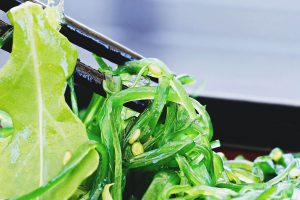Search
Growing concern for health has fuelled interest in the relationship between diet and disease prevention. But despite the remarkable scientific advances, there are still many unanswered questions, and many evidence-based messages do not reach the population and are lost in a sea of misinformation and half-truths.
The monograph, coordinated by José Pío Beltrán, CSIC research professor at the Institute for Plant Molecular and Cellular Biology (CSIC-UPV), analyses biotechnological advances in plant production.
These are just a few examples of how an increase in the generation of energy and food, per se, might not address the needs of the population which is in fact still growing.
We now have more information than ever about nutrition. But, at the same time, we have great difficulties to identify reliable information and, above all, to understand the limitations of science to answer so many of the questions that we make ourselves about how the food we eat and the food we avoid affects our health.
Artisan ice cream production is the result of the balanced contribution of many fields of science and requires in-depth knowledge in food science, mathematics, chemistry, physics, or nutrition.
We have to resort to less comfortable and more tangled phrases such as raw material or unprocessed product, because we run the risk that the next time we tell our patients to eat «natural products», they end up buying broth, refined bread or juice.
It is important not to overeat food items such as legumes and vegetables, fruits such as pears or plums, dairy products such as milk or cheese, and also products like bread or cereals, with whole grains such as wheat or rye.
María Soledad Prats Moya, from the Departament de Química Analítica, Nutrició i Bromatologia of the Universitat d’Alacant, explains.
Algae can be sustainably grown in large quantities in seas and oceans. That is the reason why many believe that in the future they will constitute an important part of food consumption in the world, and that they will alleviate world hunger.
Palm oil is a plant oil consisting on saturated fats, which increase cholesterol and cardiovascular risks.










